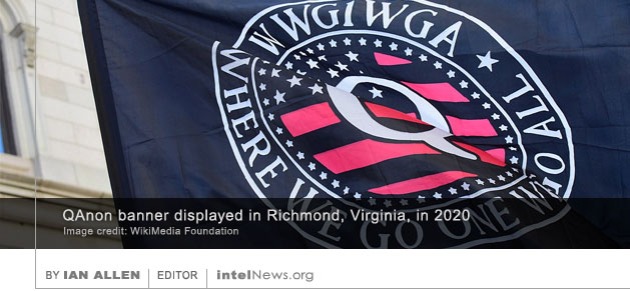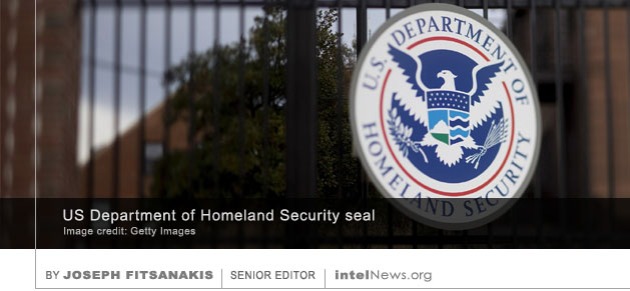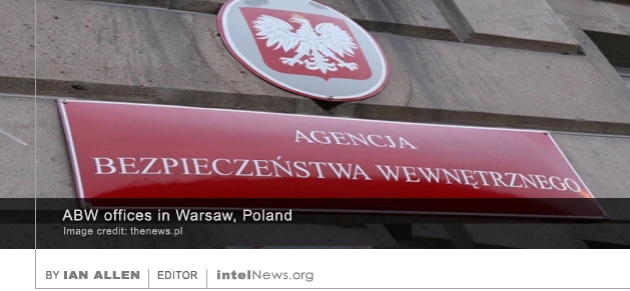US citizen wanted for January 6 attack on Capitol seeks political asylum in Belarus
November 9, 2021 1 Comment

AN AMERICAN CITIZEN WHO allegedly participated in the January 6, 2021, attack on the United States Capitol appears to have fled abroad and is said to be seeking political asylum in Belarus. Five people died as a result of a concerted attempt by thousands of supporters of the then-President Donald Trump to storm the United States Capitol Complex and invalidate the electoral victory of Joe Biden. Over 650 individuals are now facing federal charges for participating in the insurrection.
According to reports, California resident Evan Neumann was among those participating in the attack. Neumann, 48, is reportedly a handbag manufacturer who until recently lived in the well-to-do city of Mill Valley, near San Francisco. In March of this year, he was charged with six counts of criminal activity, including felonies for participating in a civil disorder and assaulting a police officer. He now appears to have fled the United States and to be seeking political asylum in the former Soviet Republic of Belarus, which is often referred to as Europe’s last dictatorship.
In a widely publicized television news segment aired on November 7, Neumann told the state-owned Belarus 1 news channel that he had been advised by “his lawyer […] to flee to Europe”. He had therefore traveled to northern Europe, ostensibly for business, from where he entered Switzerland by train, before traveling to Germany and Poland. From Poland he entered Ukraine in April, where he rented an apartment and planned to settle permanently. He claims, however, that he was “being followed by agents” of the SBU, the Security Service of Ukraine.
One night in August, Neumann “crossed illegally by foot into Belarus”, trekking through thick forest and swamps, and “dodging wild boars and snakes”. He is now seeking political asylum in Belarus. He is hoping to avoid American justice, given that Belarus does not share an extradition treaty with the United States. Under its authoritarian leader, Alexander Lukashenko, Belarus has faced concerted criticism from Western nations about its human rights record and fraught election practices. In the November 7 news segment, Neumann described the outstanding federal charges against him as “unfounded”, and said that they amounted to “political persecution”.
► Author: Joseph Fitsanakis | Date: 09 November 2021 | Permalink


 GERMANY’S DOMESTIC INTELLIGENCE AGENCY said on Wednesday it has begun monitoring groups associated with conspiracy theories surrounding COVID-19, who are “challenging the legitimacy of the state”. Germany is home to one of the most vocal anti-lockdown movements in the Western world, with public rallies against lockdown measures taking place nearly every week across the country. These rallies attract a peculiar mix of participants who come from a variety of backgrounds, including anti-vaccination proponents, various conspiracy theorists, and supporters of both far-left and far-right parties.
GERMANY’S DOMESTIC INTELLIGENCE AGENCY said on Wednesday it has begun monitoring groups associated with conspiracy theories surrounding COVID-19, who are “challenging the legitimacy of the state”. Germany is home to one of the most vocal anti-lockdown movements in the Western world, with public rallies against lockdown measures taking place nearly every week across the country. These rallies attract a peculiar mix of participants who come from a variety of backgrounds, including anti-vaccination proponents, various conspiracy theorists, and supporters of both far-left and far-right parties. LAST MONTH I WROTE an
LAST MONTH I WROTE an  The United States Defense Intelligence Agency, a Pentagon organization tasked with collecting foreign military secrets, has rejected reports that it is spying on protestors inside the country. However, it confirmed that it has set up an “internal coordination group” to respond to “requests for information” by the Department of Defense. This development follows reports that some DIA employees communicated their concerns about being asked to spy domestically to the organization’s director last week.
The United States Defense Intelligence Agency, a Pentagon organization tasked with collecting foreign military secrets, has rejected reports that it is spying on protestors inside the country. However, it confirmed that it has set up an “internal coordination group” to respond to “requests for information” by the Department of Defense. This development follows reports that some DIA employees communicated their concerns about being asked to spy domestically to the organization’s director last week. Some employees of the United States Department of Homeland Security claim that a unit specializing on homegrown and domestic terrorism was inexplicably disbanded, leaving America vulnerable to attack. The allegations were
Some employees of the United States Department of Homeland Security claim that a unit specializing on homegrown and domestic terrorism was inexplicably disbanded, leaving America vulnerable to attack. The allegations were  Germany’s largest far-right party, Alternative for Germany, has won a lawsuit against the country’s domestic intelligence agency, which is now barred from collecting intelligence on the group’s activities. Known by its German initials AfD, which stand for Alternative für Deutschland, the party was founded in 2013 on an anti-immigration, Eurosceptic, German-nationalist, and in some cases
Germany’s largest far-right party, Alternative for Germany, has won a lawsuit against the country’s domestic intelligence agency, which is now barred from collecting intelligence on the group’s activities. Known by its German initials AfD, which stand for Alternative für Deutschland, the party was founded in 2013 on an anti-immigration, Eurosceptic, German-nationalist, and in some cases  The volume of domestic communications that were intercepted by Canada’s spy agency increased 26 times between 2014 and 2015, according to a recently released report by a government watchdog. The same report states that intercepted information about Canadian citizens, which is given to Canada’s spy agency by the intelligence organizations of other Western countries, has increased so much that it now requires an elaborate mechanism to analyze it. When asked to explain the reasons for these increases, Canadian government officials said they could not do so without divulging secrets of national importance.
The volume of domestic communications that were intercepted by Canada’s spy agency increased 26 times between 2014 and 2015, according to a recently released report by a government watchdog. The same report states that intercepted information about Canadian citizens, which is given to Canada’s spy agency by the intelligence organizations of other Western countries, has increased so much that it now requires an elaborate mechanism to analyze it. When asked to explain the reasons for these increases, Canadian government officials said they could not do so without divulging secrets of national importance. Over 50 journalists and their contacts were systematically spied on by the Polish intelligence services between 2007 and 2015, according to the former director of an anti-corruption watchdog. Until 2009, Mariusz Kamiński led the Central Anti-Corruption Bureau, which was set up by the office of the Polish Prime Minister in 2006 to address corruption in the country. The body is also responsible for monitoring the operations of Poland’s intelligence services, including the Internal Security Agency (ABW).
Over 50 journalists and their contacts were systematically spied on by the Polish intelligence services between 2007 and 2015, according to the former director of an anti-corruption watchdog. Until 2009, Mariusz Kamiński led the Central Anti-Corruption Bureau, which was set up by the office of the Polish Prime Minister in 2006 to address corruption in the country. The body is also responsible for monitoring the operations of Poland’s intelligence services, including the Internal Security Agency (ABW). A government watchdog in Canada is preparing to hold a series of closed-door hearings to weigh accusations that the country’s intelligence services illegally spied on law-abiding activists opposing the construction of oil pipelines. The British Columbia Civil Liberties Association (BCCLA) sued the Royal Canadian Mounted Police (RCMP) and the Canadian Security Intelligence Service (CSIS) in February 2014,
A government watchdog in Canada is preparing to hold a series of closed-door hearings to weigh accusations that the country’s intelligence services illegally spied on law-abiding activists opposing the construction of oil pipelines. The British Columbia Civil Liberties Association (BCCLA) sued the Royal Canadian Mounted Police (RCMP) and the Canadian Security Intelligence Service (CSIS) in February 2014, 









